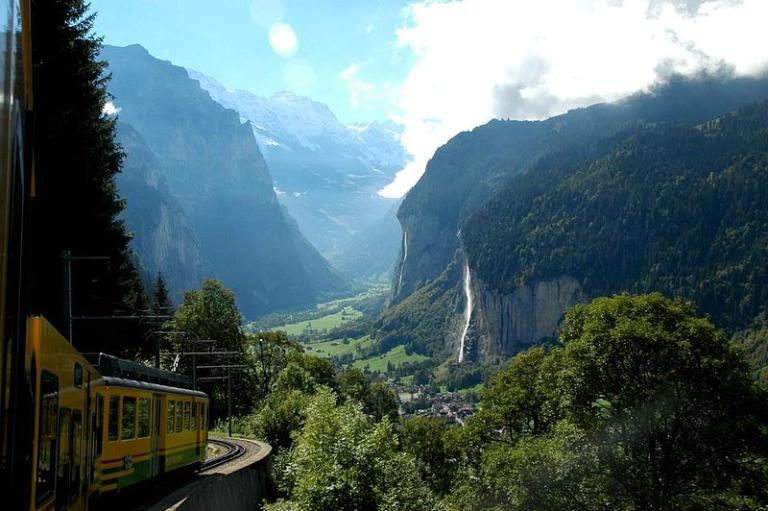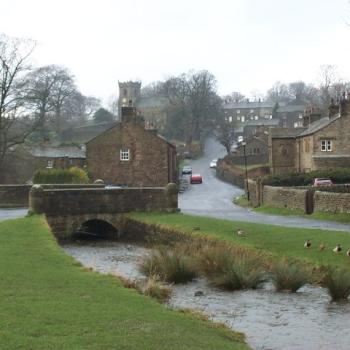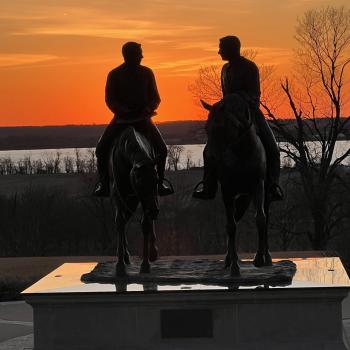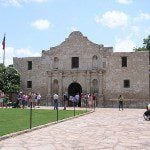
(Wikimedia Commons public domain image)
There is a comic element to the scene here where the family is gathered for the naming of the new baby.
When Zechariah expressed doubt at the news of the conception and birth of a boy to his aged wife and his own aged self, the angel Gabriel told him that he would be “silent and unable to speak” (καὶ ἰδοὺ ἔσῃ σιωπῶν καὶ μὴ δυνάμενος λαλῆσαι) until the prophecy was fulfilled. There was no mention of his becoming deaf.
At the name-giving party, though, when the family heard that the name to be bestowed upon the infant would be John, they were shocked and probably displeased.
It’s a good name, of course. In the original Greek of the New Testament, it’s Iōannēs (Ἰωάννης), which transliterates the Hebrew name Yohanan (יוֹחָנָן), “Graced by Yah [the first syllable of Yahweh or Jehovah],” or Yehohanan (יְהוֹחָנָן), “Yahweh is Gracious.”
But there was no family tradition of the name, and family tradition was very, very powerful.
So “they made signs to his father, inquiring what he would have him called.” But he wasn’t deaf. They could simply have spoken to him.
It reminds me just a bit of the curious and distinctly illogical habit that some people have, when they’re trying to communicate to someone who doesn’t know their language, of speaking more loudly. As if the problem with people who don’t speak English, say, is simply that the volume needs to be turned up several notches.
The prophecy in verse 76 is significant: “You will go before the Lord to prepare his ways.”
It seems a clear allusion to Isaiah 40:3-4 — which I can scarcely read without slipping into the cadence of Handel’s Messiah:
The voice of him that crieth in the wilderness, Prepare ye the way of the Lord, make straight in the desert a highway for our God.
Every valley shall be exalted, and every mountain and hill shall be made low: and the crooked shall be made straight, and the rough places plain.
I’ve read writers, drawing upon that passage in Isaiah, who talk about how, in the last days, the surface of the earth will be smoothed out, leaving neither valleys nor mountains. And I confess that I’ve always found such expectations or prophecies utterly cheerless and remarkably depressing. A celestialized earth without the Alps and the Canadian Rockies? Lacking the Grand Canyon? Simply flat? Appalling.
But I don’t think that’s what Isaiah has in mind at all.
John is to be a messenger, a herald, before the king, announcing his coming and preparing the road for the royal procession. The rendition given in the Common English Bible might help here:
A voice is crying out:
“Clear the Lord’s way in the desert!
Make a level highway in the wilderness for our God!
Every valley will be raised up,
and every mountain and hill will be flattened.
Uneven ground will become level,
and rough terrain a valley plain.
Before the king’s entourage arrives, the advance party is out there clearing the road, smoothing out rough passages, building necessary bridges, and announcing that the king is coming. That’s John’s role, and it’s the role of those who still proclaim the Kingdom. Not flattening the earth out and making it dull.
















